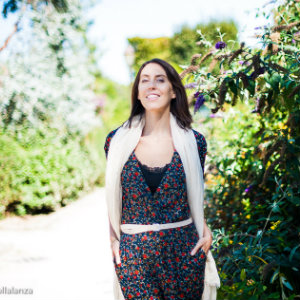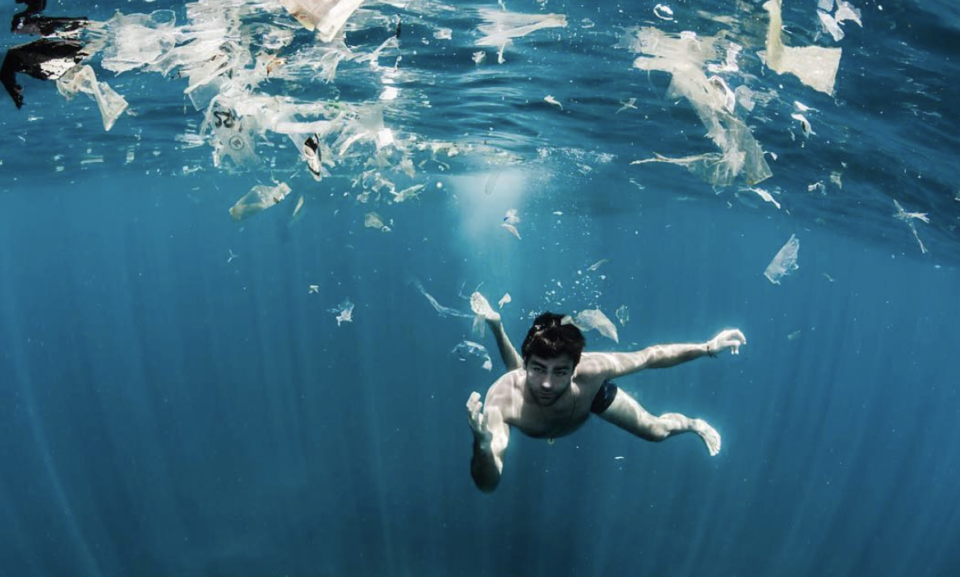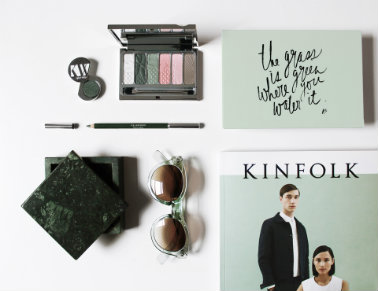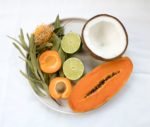The Last Straw: How to Save the Oceans One Sip at a Time
How one lonely whale ignited a movement to ban single-use plastics for the sake of our home.
It has all the makings of a Hollywood blockbuster. A sad story of a lonely soul searching the ocean for a lost love that never comes. Throw in stunning documentary footage, comedic scenes, celebrity appearances, and octopus tentacles. It even has its own musical soundtrack (think: 52 hertz of whale song).
This is the story of Lonely Whale, a nonprofit dedicated to reducing plastic flow into the ocean through impactful marketing campaigns. Adrian Grenier and Lucy Sumner co-founded the foundation in 2015, and it has been fighting to save oceans across the globe ever since.
“We created the organization with the goal of bringing people closer to one another and, in doing so, to the natural world. One thing Lucy and I both realized early on was that most people didn’t have a connection to the ocean, and they certainly did not know where to go to learn, engage with or share how they are taking action to improve the health of one of our most precious resources,” Grenier explained.
A precious resource indeed. The oceans cover 71% of the earth’s surface, containing 97% of the earth’s water and 99% of the planet’s living space.

Lonely Whale’s Executive Director, Dune Ives, joined the team from Vulcan thanks to what she describes as “a shared passion around creating content that really engages both the hearts and minds of people around ocean health.”
500 million plastic straws are used every day in the US, many of which end up in oceans, pollute the water and harm sea life. Every year, between 8-12 million metric tons of plastic enter the ocean. 91% of plastic isn’t recycled. Plastic bottles are among the top five most common items found in beach cleanups across the world. So, how do you get people to put down their plastic and listen?
Every year, between 8-12 million metric tons of plastic enter the ocean.
“There is a whale that is known to swim the world’s ocean, presumably by itself, singing at a frequency of 52-hertz for companionship that no other whale has been known to sing at before or since. All the while, we keep dumping toxins and pollution in its way, making it hotter, more acidic and louder through,” Grenier said, adding: “The story of the Lonely Whale captivates all who hear it and causes them to ask, “what can I do?”.
Dune tells us: “We wanted to start with something very simple—skipping the plastic straw—so people could easily and quickly feel like they are making a difference. The plastic straw is a symbol of our over-consumption of single-use plastics, and these campaigns are specific, asking consumers to stop using plastic straws.”
#StopSucking
Their #StopSucking campaign urges people to stop using single-use plastic straws. This social media challenge asks individuals, organizations and brands to pledge to #StopSuckingon single-use plastic straws. The PSA features Van Jones, Kendrick Sampson, Amy Smart, Emmanuelle Chriqui and more stars who hilariously admit “I suck” before pledging. Celebs from across the globe accepted the challenge, including Leonardo DiCaprio.
Their “Strawless in Seattle” campaign (a clever tactic to pull on our heartstrings and put down our plastics) was an integral initiative for Seattle businesses. This demanded businesses to use compostable straws and utensils starting July of 2018, and several cities have followed suit since.
Today, more than 127 countries have banned single-use plastics and other non-recyclable items. Twenty-six U.S. cities and eight countries have banned plastic straws. Impressive numbers, but Ives says: “Most importantly, these campaigns gave people permission to question the status quo and demand a better future. It doesn’t seem like much when you’re one person, but we’ve already seen what can happen when millions of people around the world say no to a single-use plastic straw!”
#HydrateLike
One million single-use plastic bottles are sold every minute around the world. 500 billion are used around the world per year, and by 2050, the ocean is expected to contain more plastic than fish.
Lonely Whale’s latest culture-changing campaign in partnership with Point Break Foundation is called “Question How You Hydrate.” It urges people and corporations to find—and share—alternatives for single-use plastic water bottles. #HydrateLike is the rallying cry that launched the movement at pop-ups in NYC and Miami.
“We often say that Lonely Whale thinks like a leading brand, “selling” the concept of a healthy ocean and marketing viable proof points that benefit ocean health in a way that everyday people want, resulting in not just one action but multiple actions to address ocean degradation,” Ives explained. “We’ve found sharing via social is one of the best ways to create buzz and spark individual change.”

From individuals to corporations, Lonely Whale has taken huge strides to enact change. NextWave Plastics has worked directly with major companies like HP, Ikea, Dell and General Motors, who have all taken initiatives to keep ocean-bound plastic in their supply chain and out of the oceans. “It’s remarkable—and admirable—that companies, some of which are competitors, are coming together around this cause,” says Ives.
[In 2025] The ocean is expected to contain 1 ton of plastic for every 3 tons of fish.
Lonely Whale also empowers the next generation – who will be most impacted by the plastic pollution crisis – and involves them from an early age. The Ocean Heroes Bootcamp is a program designed for youth that has hosted more than 1,0000 kids from over 50 countries. “This generation has the potential to drive positive ocean impact at scale through their actions,” says Ives of the group who will graduate from high school in 2025 when the ocean is expected to contain 1 ton of plastic for every 3 tons of fish.
“If we begin to care about climate change, we will also begin to care about the ocean’s health, as the two are inextricably linked. Did you know that the ocean is responsible for the oxygen in every other breath we take? Because of the increasing greenhouse gas emissions and resulting carbon dioxide, we know that our ocean is not only becoming warmer and more acidic, but also de-oxygenating,” Ives explained.

While the pollution of our oceans is a deep issue with no overnight solution, Lonely Whale continues to push for what they call “radical collaboration.” “Radical collaboration means everything we do must be developed and executed with other partners, such as the UN Environment Program. Even more, we must be open to learning from others, to work within a growth mindset that values others opinions and respects their experiences and capabilities, and to be willing to say yes more often.”
According to Ives, “Nearly 75% of aluminum ever produced is still in use today, whereas 91% of all plastic produced has not been recycled.” The launch caught the attention of Pepsi and Coca-Cola, who subsequently announced plans to switch from plastic bottles to aluminum cans for leading water brands Aquafina and Dasani. The campaign also led Facebook, 2019 Global Citizen Festival, and the San Francisco International Airport to ban plastic water bottles.
Even the smallest gestures can have a big impact.
Great news for the oceans, though the happy ending for this Hollywood-like story is still up in the air and deep under the seas. But Lonely Whale also has another not-so-secret weapon for a guaranteed plot twist: optimism. The non-profit has proven that even the smallest gestures can have a big impact. Perhaps the world’s loneliest whale may soon be singing a different tune.
“Every individual matters. Plastic pollution is solvable. Every day, we wake up and we make choices, and we can choose to participate and be part of a solution,” Ives says.
That certainly doesn’t suck.

Rebecca Leffler is a Paris-based writer and journalist who, after a career as the French correspondent for The Hollywood Reporter and as a film critic on Canal+, traded red carpets for green smoothies. She’s written five books about healthy lifestyle from Paris to NYC and beyond, including Très Green, Très Clean, Très Chic: Eat (and Live!) the New French way with plant-based, gluten-free recipes for every season, and most recently Le Nouveau Manuel de la Cuisine Végétale. Rebecca has pioneered the “vegolution” in Paris, where she continues to organize events focusing on healthy eating, yoga and la vie en rose… And green! You can keep up with Rebecca on Instagram!







